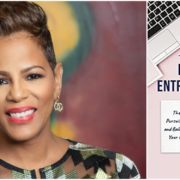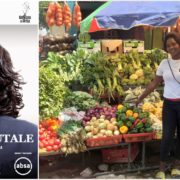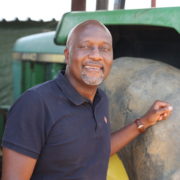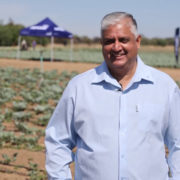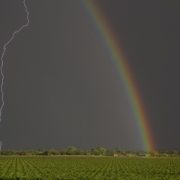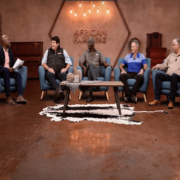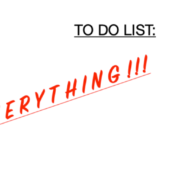By Lionesses of Africa Operations Department
Following on from our article last week about changing the flow of Luck through working on the ‘little things’, this week we look at how this can actually be achieved. We’ve all heard the adage – ‘How do you eat an Elephant? – One bite at a time!’, to show that even the most monumental task can be brought down to bite-sized chunks and indeed at that level the chances of success if you persevere is far greater than sitting in front of a massive ‘Nellie’ and wondering what next?! This has been recognised through time and it is certainly no wonder that one of the most famous and well-known Chinese sayings is “A journey of a thousand miles begins with a single step”.
Easy to say, less easy in practice when faced with bottlenecks in business, or a forced change of direction (e.g. Covid forced everyone online overnight), or yet another hard knock from the University of Hard Knocks that is otherwise known as ‘running your own business’.
So what are the obviously easy to do areas we can work on in a business to constantly move ourselves forward? And, how can we make this a ‘muscle memory’ as seen with great sports people, so that without thinking we get up the next morning and repeat effortlessly? AND, what are the Elephants that if we stared at the list we would just become overwhelmed and just pull the Duvet back over our heads…
Let’s start with the Elephants…
Our Debtors’ List is usually one Elephant that is left for far too long… How do we cut that down without having to clear our diary for the day, knowing that it will be so daunting that we might just get to the end of the day and find we only called three (and they were the easy ones…).
Sales is the other area…
Sales run your company. No matter how solid your structure and processes, if you can’t get your product into the paying customers’ hands, then you are toast! It is 7x less expensive to keep and upscale current customers than it is to find new. So we have to work on our current customer lists, find out what makes them tick, find out their problems and issues and solve them. That’s great with those who are trading daily and whose faces light up when you come into their office… but what of those ones who have gone quiet? You have been avoiding this conversation for ages… There is no choice and you know it – you have to call or sit with them and find out why they have gone quiet – was it because of a mistake on your part, a misunderstanding? Was it because your product is no longer the best? Are your prices out of kilter with the market? This is all essential information…
Years of relationship building means nothing if things when they go wrong are not handled well – as the phrase goes: “Trust arrives on foot but leaves on horseback”. Mistakes made when there is a problem can undo even the closest of relationships, just look at how families and even siblings fall out – often the closer the relationship, the worse the fallout.
As all politicians know (yet strangely often seem to fall into the trap): ‘It is not the error – it’s the cover up that costs’.
Luckily a fall out, a mistake, an error is not the end of the relationship and if handled well can actually strengthen the relationship. We previously showed the incredible benefits available by solving completely a problem (here) from the fascinating Wharton Baker & Verde Group US Consumer Loyalty Study, January 2021 (here):
“The Great Payoff of Delivering WOW! Experiences Consumer Study Reveals that Retailers Who Deliver WOW! Experiences Increase Repurchase Intent by 12%-58%”
What they found was that the “…most influential experience is delivering “hassle free customer support”. Great – tell us something new! BUT, the study also found interestingly, that repurchase intent is highest when retailers solve problems “to a customer’s complete satisfaction.”
Of course if you look at your customer list with 50 or 100 names it will be just too overwhelming…that is one seriously large Elephant! And this is the problem – so large and so daunting that we never take that first step. So set yourself small steps by focusing on one old customer that has gone quiet, a day, but (and here is where it gets interesting), turn this into a habit, so that one customer a day becomes 15 in three weeks.
Sounds easy – but how do we make this a habit?
We have to anchor this to a habit we already have, so that when we do ‘x’, we then do ‘y’. One habit forms another…
I have a coffee in the morning (call a debtor), and a cup of Tea in the afternoon (call a quiet customer). In the book ‘Tiny Habits: The Small Changes That Change Everything’ by B.J. Fogg PhD (here), Dr.Fogg calls these anchoring habits ‘Prompts’ and reduces all ‘things we have to do’ into ‘motivation’ and ‘ability’.
To give a simple example: Our teenage sons have the ability to make their beds, but the motivation of…(struggling to find some description that doesn’t include ‘dead sloth’) – well you get the idea. But if you attach making the bed to a daily habit of theirs, such as asking Mum for another $3 to top up his phone (that seems to burn through data at a crazy rate!), then this making of the bed slowly becomes a habit until he will not remember a day when he didn’t make his bed. The same is true of your Elephantisimal (new word – you can thank us later!) lists…Make them into small habits.
Moving effortlessly (seriously? – Ed.) back to those sales lists, one great exception to the above 7x more expensive rule and one of the best ways to gain customers?
Referrals.
As the Harvard Business Review recently showed (here): “EBay is one e-commerce leader that is reaping the economic benefits of referrals from loyal customers. More than half its customers are referrals. “If you just do the math off our quarterly financial filings,” CEO Meg Whitman recently told the Wall Street Journal, “you see that we’re spending less than $10 to acquire each new customer. The reason is that we are being driven by word of mouth.” EBay has even found that the costs of supporting referred customers are considerably lower than for those brought in through advertising or other marketing efforts. Referred customers tend to use the people who referred them for advice and guidance rather than calling eBay’s technical support desk. In effect, loyal customers not only take over the function of advertising and sales, they even staff the company’s help desk—for free!”
Great – so you have the morning Coffee and Afternoon Tea covered – Referrals are good fun, call for one as you have your Sandwich at Lunch!
Suddenly in three weeks that is 15 debtors, 15 quiet customers and 15 referrals (and don’t forget to ask them for a cool reference for your Social Media!). Look back at your previous three weeks – you spent the entire time just staring at those lists, didn’t you!?!
Lastly – stick at it. These habits will form and they will get easier over time – like a muscle memory in a sportsperson, just like meditation – the noise around you disappears quicker, so it is with these small habits that start to form.
In the recent US Supreme Court nomination process (yes, apparently it was a ‘process’ to belittle a seriously qualified candidate at a job interview as some politicians did), the nominee, a brilliant lawyer and Judge of many years standing, looking to become the first black woman Supreme Court Judge – Ketanji Brown Jackson was asked what she would tell the youth of today… (here).
“The first semester [at Harvard] I was really homesick. I was really questioning: Do I belong here? Can I make it in this environment? And I was walking through the yard in the evening and a Black woman I did not know was passing me on the sidewalk, she looked at me, and I guess she knew how I was feeling. She leaned over as we crossed and said: “Persevere.”
“I would tell them to persevere.“
A message for us all, but certainly when it comes to forming essential business habits.
Stay safe.


